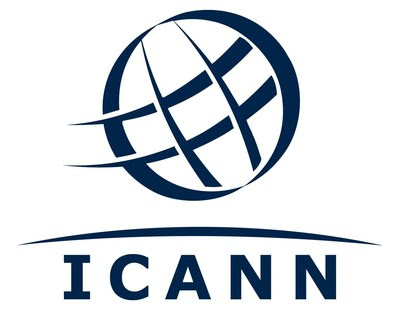Between July and September, an estimated 119,039 refugees and migrants, including 10,821 children, arrived in Greece, Italy, Bulgaria, Serbia, Bosnia and Herzegovina and Montenegro through the Balkan and Mediterranean routes.
To date, 19,200 children have been reached with child protection services, around 23,072 have gained access to education, while 2,906 schoolteachers have been trained on inclusion of refugee/migrant children. 3,779 children and mothers have accessed health and nutrition services and 239,970 people have been reached with messaging on prevention and access to services.
The number of new refugees and migrants continues to increase due to conflict and political crises, socioeconomic effects of wars and the pandemic, food insecurity and the impact of climate change, stretching capacities of host governments to sustain equal access to quality basic services. Gaps include accommodation and sanitation facilities, health and protection services, learning opportunities, measures to prevent and address gender-based violence and care and support for unaccompanied and separated children.
While UNICEF has US$ 26.9 million available against its US$ 42 million appeal, a funding gap of 22 percent remains. UNICEF appreciates generous contributions from its donors and requires continued support to meet critical needs.
Situation in Numbers
148,000 – estimated # of children in need (UNICEF HAC 2022)
79,700 – estimated # of children to be reached (UNICEF HAC 2022)
119,039 – estimated # of arrivals in Q3 2022 in Greece, Italy, Bulgaria, Serbia, Bosnia and Herzegovina, and Montenegro
17,483 – estimated # of unaccompanied and separated children present in Greece, Italy, Bulgaria, Serbia, and Bosnia and Herzegovina
Funding Overview and Partnerships
By the end of September, UNICEF’s 2022 Humanitarian Action for Children (HAC) appeal for the Refugee and Migrant Response in Europe is 78 percent funded (US$ 32.6 million). This includes US$ 5.7 million carry over from 2021, and US$ 26.9 million received in 2022 from the European Union (EU), UNICEF National Committees in Germany, Italy, Norway, Sweden and pooled Global Thematic Humanitarian funds. Funding received has enabled UNICEF and partners to sustain critical health and nutrition, child protection and education services, provide urgent non-food items (NFIs) and water, sanitation and hygiene (WASH) supplies, and realize youth engagement and social behaviour change activities.
UNICEF appreciates the generous contributions from its donors. Continued, flexible and timely resources are critical to enable UNICEF to support essential, evidence-based, national responses addressing immediate needs and mitigating longer-term impacts on vulnerable refugee and migrant children in Europe. While generous contributions have been received, they are not provided equally for the different countries. Funding gaps remain particularly high for Montenegro (97%) and Bulgaria (95%), with Bosnia and Herzegovina, Serbia, and Italy also remaining above 75%, which has significantly hindered the progress against targets in critical areas.
UNICEF continues to work with national authorities, United Nations High Commissioner for Refugees (UNHCR), International Organization for Migration (IOM), and other United Nations (UN) agencies, Non-Governmental Organisations (NGOs), civil society organizations (CSOs), and faith-based leaders to ensure the rights of children and families on the move are protected. Inter-agency coordination continues to enable effective emergency response, relocation, and country-specific initiatives to ensure protection and basic services for populations in need. Working directly with Governments and EU institutions, UNICEF and partners are developing and delivering unified and coordinated messages and policy positions, while advocating for key child rights issues faced by refugee and migrant children.
Situation Overview & Humanitarian Needs
Between July and September, an estimated 119,036, refugees and migrants, including 10,821 children, arrived in Greece, Italy, Bulgaria, Serbia, Bosnia and Herzegovina, and Montenegro. This presents a 195 per cent increase compared to the same period last year. Arrivals came mainly from Afghanistan, Bangladesh, Burundi, Iran, Pakistan, Syria, and North Africa. Although many new arrivals, particularly in the Western Balkan countries, continue to move on to other countries, they still require shelter and services for their initial days or months, to address their most urgent needs.
As of the end of September 2022, over 243,900 refugees and migrants are estimated to be present in the six countries covered under this HAC, including 44,614 children with their families and 17,483 children who are unaccompanied and/or separated.
The increase in arrivals of refugees and migrants, alongside the domestic socio-economic impacts of the COVID-19 pandemic, energy and food crises, continue to put pressure on national systems in hosting countries, stretching government capacities of to sustain equal access to quality basic services for all refugee and migrant as well as host communities. Gaps include overcrowded reception facilities, generating additional challenges in providing adequate sanitation and hygiene facilities, sufficient access to health and protection services and learning opportunities for children and families; insufficient measures to prevent and address gender-based violence (GBV), which put women and girls at risk and inadequate identification and protection mechanisms and limited availability of alternative care and legal guardianship options, which exacerbate the vulnerability of unaccompanied and separated children.
Source: UN Children’s Fund
ZCZC


